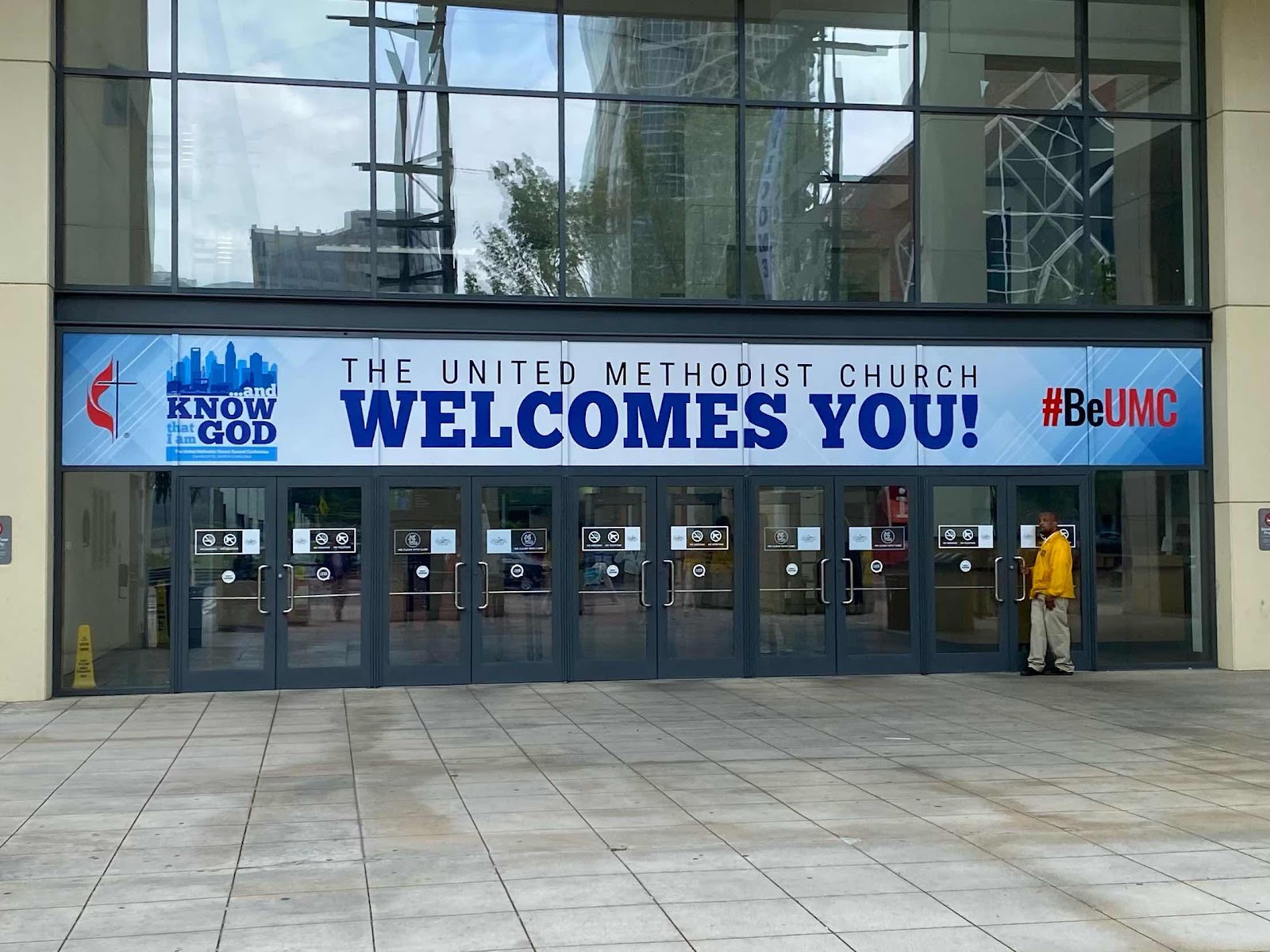
I sat in as an alternate delegate and voted all morning on the last day on General Conference! It was a joy to participate more actively.
That afternoon, I was driving home from General Conference and reflecting. Just when I thought I might pull over because of a rainstorm to post a few pictures of my last day, I realized I was in Banks County, GA. This reminded me how much I’m UNITED Methodist, with every fiber of my being.
Why? My ancestors started a Methodist society RIGHT HERE in Banks County, GA where they are buried at Mt. Pleasant UMC. Their son (my Dad’s 3rd great grandfather) was ordained by Francis Asbury in 1800. Rev. Levi Garrison was a circuit rider for 7 years until he “located” and pastored local churches in nearby Anderson, SC.
And now here I am in Banks County, posting as the storm clears about how proud I am that the UMC has made it through the storm!
I’ve just left a historic General Conference, where it felt like Annual Conference felt last year. Yes of course there were healthy and normal debates, but all the rancor was gone. There was a sense of companionship, unity, healing, and connectedness.
Here are five huge takeaways for the UMC as we move forward:
1) “Regionalization” legislation passed with flying colors and will be sent to annual conferences for ratification (it’s a constitutional change). This will give United Methodists in different parts of the world (Africa, the Phillipines, Europe, and the U. S.) a great deal of autonomy in sorting out the social issues of their region, all under one General Discipline with the core beliefs that bind us together.
2) A fresh new set of social principles were passed which replace the archaic ones that have been amended and strung together countless times. Having a robust set of non-binding social principles (they aren’t church law) has been our tradition for over 100 years, since the church tackled issues such as temperance and child labor and made a big difference. One delegate, who happens to be a Supreme Court Justice in Zimbabwe, practiced true spiritual conferencing to find language to define marriage in a way that Africans, Americans, and everyone else in the room could support in unity. The idea that Africans and the US would never find a way to agree and move forward was a WCA/Good News/IRD “separatist narrative” that we just proved to be untrue. When you were committed to unity, you find a way.
3) The controversial and harmful language in the Discipline about human sexuality has been removed, including the punitive language and schismatic disaffiliation legislation inserted in 2019. We don’t have to agree to be together in unity. So we speak of what we agree on across the diverse world and give each other contextual space to go about the business of the gospel!
4) The denomination practiced good financial stewardship after Covid and the season of disafiliations and reduced budget dramatically. Included in this plan is that no new bishops will be elected this year … anywhere in the five US Jurisdictions … and a number will retire. There will be reassignments and transfers and conferences will creatively share bishops. At the same time, we will add 2 new bishops in Africa (we were originally planning on 5). Our denomination is perfectly sustainable moving forward!
5) As per the original "one church plan" that almost passed in 2019, the punitive bans were lifted, but there were also positive built-in protections for churches and pastors to be as traditional as they want to be. It’s sort of a “federated approach.” It’s always been the best way forward. We are a people of open minds, open hearts, and open doors!
So I am happy to “be UMC” in a new season! Thanks be to God.
Accurate information can be found in our bishop’s letter to the North Alabama Conference. You can find it here:
https://www.umcna.org/postdetail/18354109
More accurate information will be coming out from our annual conference soon. Look for that and talk to your pastor! Naturally, you can’t trust everything you’ll read ot hear, especially when it originates from sources with a separatist or proselytizing agenda.